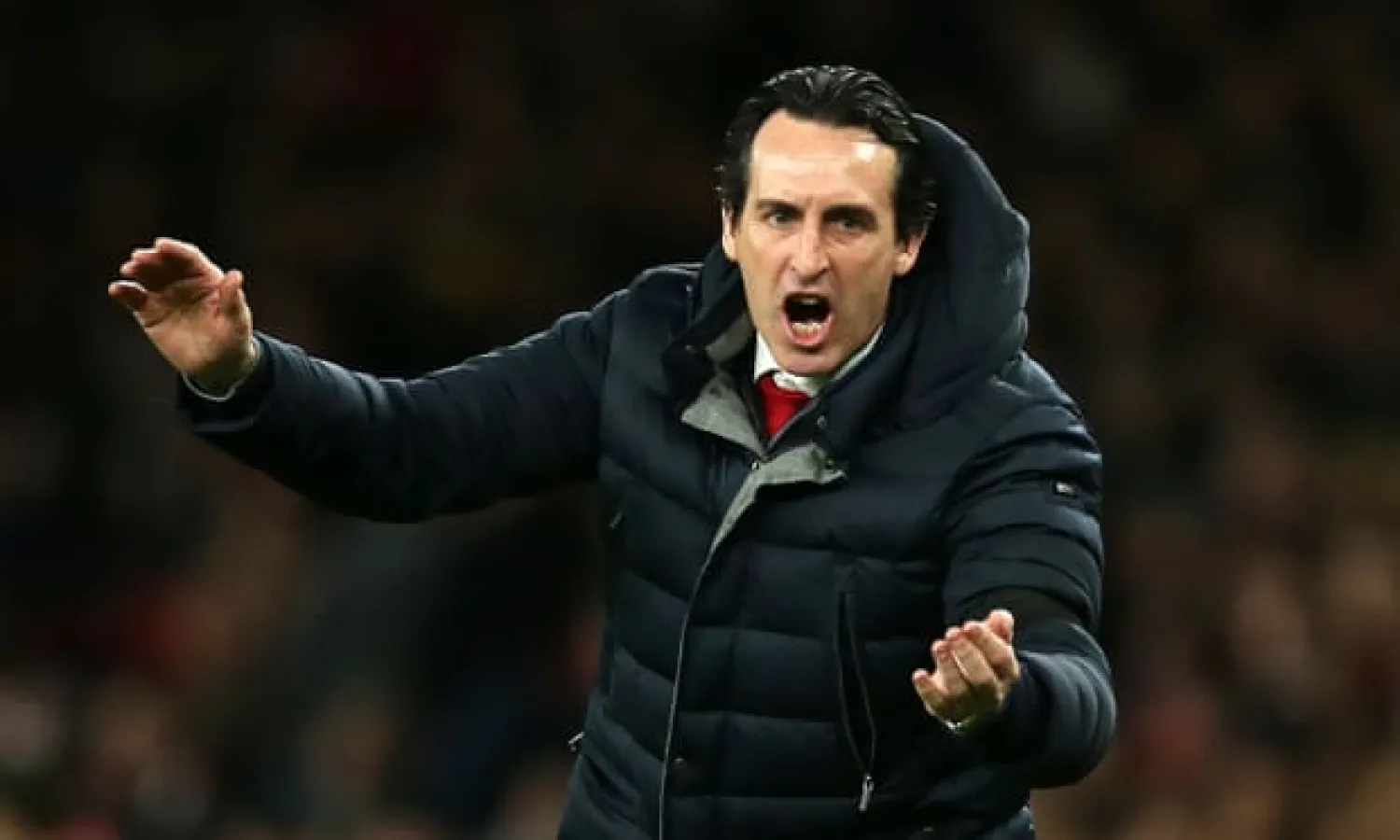Unai Emery has been studying. The primary aspiration this season was always writ large: get Arsenal back into the Champions League any which way. So to try to get the measure of where his team stand, what their chances are and also forage for clues to improvement, he has been busy examining Premier League trends to bring reassurance they are on the right track.
“I use a lot of information about the previous years in the Premier League of other teams and also our team,” he says. “I remember three years ago Liverpool were playing in the final of the Europa League, they were in the top four in the table in the Premier League. Their progress is very good progress. Maybe Manchester City is a different example, because they bought important players, paying a lot, and maybe we can’t do that. But our way is we can do something similar to Liverpool, similar to Tottenham, doing more with young players, using players well who can improve with us. We are doing that. We need time, but also we need to be very demanding of ourselves.”
Six months since Emery’s first Premier League match, a free pass at home to Manchester City that ended more or less as expected with his experimental side dominated by the serene champions, Arsenal face City again. It seems like a useful time to try to assess the level of progress. We can calculate the tangibles: they are five points better off than this time last season and two positions higher in the table having snuck a little fortuitously back into fourth at Chelsea’s expense. They are not quite so far behind the league leaders (14 points compared with 23 last time). They were out of both domestic cups before the snow came, never mind melted.
But it is the thing you cannot chronicle with statistics that matters even more for Arsenal’s longer term. What exactly is Arsenal’s identity under Emery? Should it be more defined by now? Even if there are mitigating circumstances, particularly with a curse on his defence that makes them drop like flies, is it reasonable to wonder whether Arsenal should be slightly more Emerified in their approach?
Last weekend, as Arsenal were picked off by Manchester United, the question of team identity felt sharpened. United exhibited a style that seemed so familiar and Ole Gunnar Solskjær rubbed it in by explaining how he had shown his team videos of successful counterattacking goals targeting the very worst of Arsenal, with an overstretched defence more or less pointing neon signs behind the full-backs saying “Space this way”.
Even if Solskjær has made it look easy by sorting out a clearly defined and inspirational method in a few weeks, it is not always that finger-clickingly simple. The challenge to create a team in his own image has been problematic for Emery because the tools he has to work with are not in many cases the ones he would have chosen, and half the time quite a few of those tools have needed fixing themselves. It is awful luck to lose some of the players who have shown the most improvement under Emery to long-term injury – Héctor Bellerín and Rob Holding particularly – along with Danny Welbeck, whose work ethic would have appealed. The Mesut Özil Rewinding to the day Emery was announced as Arsenal’s chosen one to be the post-Wenger answer, he outlined his stylistic ideas. “I like to win the ball back as quickly as possible. It’s about two things: possession and pressing. We want to play looking forwards.” His mission statement was to “be among the best and beat the best”.
There have been flashes of high-intensity football from Arsenal – the best example being a blistering second-half comeback in the league game against Tottenham – but there have been plenty of games lacking that edge and energy. Only a few days ago against Cardiff they toiled, mostly pedestrian, not particularly cohesive, thankful for the individual attacking qualities of Pierre-Emerick Aubameyang and Alexandre Lacazette. The worst games, the ones that seem to completely lack Emery’s ideas of winning the ball back quickly, pressing and playing forwards, reared an ugly head in the humiliation at Anfield, for example. Overall it has been a mixed bag, with the manager tinkering repeatedly with players, formations and ideas, which is why it is so difficult to figure out exactly what Emery is trying to achieve this season with this group of players. Just over eight months after he was appointed, evidence of a stylistic shift away from the years of Wengerism remains cloudy.
Now to the Etihad. Emery tries to stress that Arsenal need the points just as much as City for their own reasons. “Usually we want to have the possession more than the opposition but against Manchester City, maybe I think it is not possible. It’s a very big challenge for us to prepare for this match,” he concedes.
His admiration for Guardiola is unstinting, even if he has the luck to work with such refined squads. “I have analysed a lot of teams and coaches and I think it’s difficult to find one coach who is better than Guardiola. He has had the possibility to take the best players at Barcelona, in Bayern and in City little by little. Every year he is improving with great players and also paying a lot for new players but he led them, at Barcelona, Bayern and City, one step more every place. This, for me, is the quality that makes me say he is the best.”
Without quite the same luxuries, Emery continues to plot his path towards the improvement he craves, the intensity he loves and the consistency of style he hopes will come.conundrum is a continuing complication. The fatigue suffered by Lucas Torreira after his initial tornado of form has not helped.
The Guardian Sport









